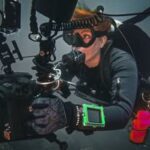Last Updated on January 6, 2025 by Candice Landau
This is a question I’ve been asked a lot, usually because photos make it look like such a gear-intensive and travel-heavy sport (a bit like skiing).
The truth is, scuba diving can be very affordable. Once you’ve got your scuba certification and purchased your own gear, the only real cost is air fills/tank rentals and getting to the dive site.
In places like Washington State there is tons of free shore diving. In Oregon, free lake, river and jetty diving. In California, free shore diving and easy-to-access boat diving, in Florida, easy-to-access boat diving and affordable springs diving, and in many other states (that I haven’t lived/dived in), lots of the same.
>> Related Reading: How Much Does Scuba Gear Cost?
Of course, if you only want to dive in warm, crystal-clear waters, it may well become expensive. For the first 6 years of my dive career, I only ever dived in the Pacific Northwest and to this day, I still consider it some of my favorite diving—wolf eels, giant Pacific octopus, so many nudibranchs, rockfish, lingcod, cloud sponges, and on and on.
To make scuba affordable dive local, purchase gear slowly (rent if you need to) and pick sites that don’t have parking fees. Carpool to make it even more affordable.
That said, here are the actual costs of getting certified.
>> Related Reading: Scuba Diving Oregon: Dives Sites for Anyone

The scuba diving certification itself

A scuba course can run anywhere from $399 through $1,000 depending on the dive shop/operator, the dive agency and the dive instructor. If you need to dive in very cold waters you might also need to add on a drysuit specialty, or a drysuit checkout. That should cost you less than the open water course. My drysuit course cost me $150.
The course costs are usually divided into: 1) the book/elearning and 2) In-water instruction portions including confined in-water training and open water training.
The checkout dives (the open water dives you do to finish your training once you’ve done your confined/pool dives) might include a parking fee depending on where you’re checking out, the cost of transport to get to the site, any tips you want to give, and food for the couple of days you’ll be checking out (more on that below).
On the low end, the total cost of getting certified could be around $600, including the logistics costs. On the high end, slightly over $1,000.
The basic dive gear you’ll buy

Most dive shops will have you purchase some basic gear when you buy your scuba course, though you could ask about renting it instead. This will usually include: a dive mask ($40 – 200), fins ($90 – 300), a snorkel ($20 – $70), and wetsuit boots ($30 – $100).
My first dive gear was a TUSA package, including mask, snorkel, and split fins. I also bought Aqualung wetsuit boots.
A lot of dive shops bundle these packages or offer a discount if you’re taking the dive course with them. Sometimes they’ll offer discounts if you buy packages from one manufacturer or another. I highly recommend buying your gear in a dive shop so you can try it on.
There’s a marked difference between the quality of genuine gear made for scuba diving and cheap gear made for Walmart. It will mean the difference between a miserable certification and a good time.
Most dive shops will include the cost of the rest of your scuba gear rental for your open water course in the fee of certification. If they don’t, you might want to look elsewhere…
If you’re really strapped for cash, ask about renting even your basic dive gear.
On the low end, the total cost of a basic scuba gear pack could be around $250. On the high end, around $400.
>> Related Reading: Cold Water Dive Gear: A Shopping List For New Divers
Other costs you might incur
Other expenses to keep in mind:
- Parking
- Dive Site fees (sometimes these exist at sites like Blue Grotto or Devil’s Den in Florida)
- Food (meals for certification)
- Tips for divemasters/instructors
- Gas to get to the site, and gas to get to pool sessions/confined water to do training
- Any additional rental costs not included
- Accommodation if you have to drive far to your course
Have I forgotten anything? Any unexpected expenses you incurred on your own course or while learning to dive? Leave a comment below!

















